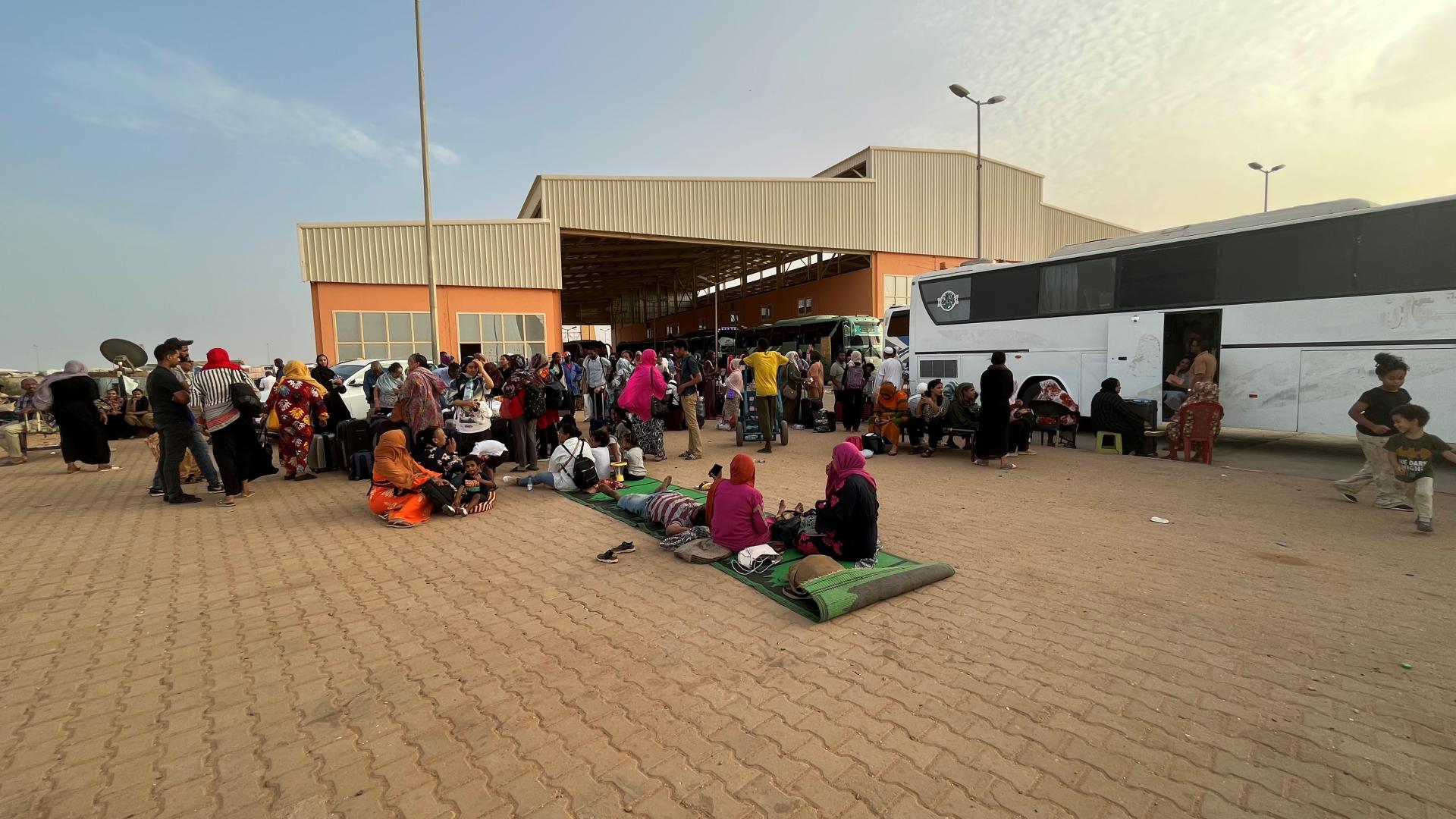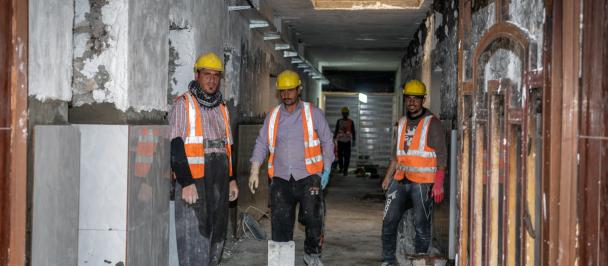Conflict driving historic levels of forced displacement in Sudan, Ukraine and beyond
June 20, 2023

Historic levels of war and violence are unleashing devastation, poverty and hunger, and driving tens of millions of people from their homes. Internally displaced persons often need lifesaving aid such as food, water, protection and shelter. Securing the future of displaced populations also requires a greater investment in livelihoods, basic services, and inclusive participation in community life.
Last year,the Internal Displacement Monitoring Centre (IDMC) reported that there was a 17 percent jump in the number of people internally displaced by conflict. At the end of 2022, the total number of internally displaced people passed 71.1 million. With conflict breaking out in Sudan in April, even more face an uncertain future.
Sudan at risk of plunging into greater instability
The outbreak of fighting in Sudan has forced more than 509,000 to flee across borders. Inside the country over 1.6 million people are displaced, of which nearly half are children. This is in addition to the almost 3.8 million people who were already displaced, primarily concentrated in Darfur. Before the current wave of violence, Sudan also hosted over one million refugees, mostly from neighbouring countries.
More than half of the population now require aid and protection. The number of people in need has increased from 15.8 million before the current crisis to 24.7 million in June. Prices for commodities have increased by 400 percent, an additional 2.5 million people could face hunger, and 67 percent of health facilities in areas affected by conflict are out of service.
The crisis has triggered an inflationary spike in neighbouring countries which is further exacerbated by the reductions of imports of staples and basic commodities such as oil, flour and sugar from Sudan. This will significantly impact education and health as populations struggle to afford basic services.
In response to the crisis, the UN and its partners have revised the 2023 Humanitarian Response Plan, appealing for over US$2.5 billion in aid for Sudan. A further appeal of $470.4 million has been launched to support refugees and returnees in the Central African Republic, Chad, Egypt, Ethiopia and South Sudan.
UNDP is part of inter-agency assessments on the socio-economic impact of the conflict to shape and support the emergency response, to sustain access to energy, water, protection, health, and livelihoods, with an aim to promote local peace where opportunities arise. UNDP will continue to scale up its support in Sudan as the situation allows.
Meeting immediate humanitarian needs remains a priority, but Sudan has overwhelming challenges that could plunge it further into chronic humanitarian crisis and political and economic instability. Development is the only reliable tool with which to break the 30 years of violence that’s plagued the country. Investing in early recovery and resilience as part of the humanitarian response will lay the foundations for development and peacebuilding.
The human impact of the war in Ukraine
In Sudan, UNDP will be able to draw on its knowledge and experience working on internal displacement in 76 countries, including Ukraine.
In Ukraine, an estimated 5.4 million people are internally displaced and 8.1 million have fled abroad. Many Ukrainians have had their properties damaged or destroyed. They have lost their livelihoods and used up their savings. They have been left traumatized. Women, children, older people and those with disabilities - the majority of those displaced - report the greatest needs. Host communities are at the centre of addressing human development challenges.
One of the first actions of the Government of Ukraine was to improve displaced families’ ability to register in their new places of residence. The government expanded the UNDP-supported online platform and mobile app, known as Diia, to facilitate registration and applications for pensions, state subsidies and services. As well as helping families buy basic food or get financial help to find a safe place to stay, e-services ensured that millions of displaced Ukrainians could easily and quickly get emergency state support no matter where they were.
Displaced people and their hosts in Ukraine have played a key role in responding to the crisis. Networks of volunteers sprang up or scaled up across the country. The UNDP-supported NGO “Zahody” is one example. It trains displaced people to help restore municipalities and communities damaged in the fighting. It is run by Iurii Davydenko, who has been displaced twice, from Donetsk and Mariupol, and now continues to help other displaced people in the west of Ukraine. Support also includes a project management, advocacy, and communication training programme, to help people find work.
"Many people have great ideas but don't know how to put them on paper. They want to do it, but they just can't. We sit down and work together. And then this person wins a grant and implements the project," he said.
A new global approach is needed
As the crises evolve in Sudan, Ukraine and elsewhere, so do displacement patterns, with waves of new and secondary displacement taking place alongside return, local integration and relocation. The UNDP approach is responsive to immediate needs relating to physical, material and legal security, gradually enabling displaced families to secure their futures and to become self-reliant through sustainable economic and social reintegration.
In line with the UN Secretary-General’s Action Agenda on Internal Displacement, the UNDP offer works toward the 2022 call for a ‘stepped up, earlier and more predictable engagement of development actors to support national and local governments in scaling up their work to bring about solutions’.
Development can speed up an end to the suffering and despair of millions of displaced people and secure peace for current and future generations. Sustainable progress depends on an increased focus on national responsibility for displacement-affected communities rather than humanitarian assistance. By investing in development, governments will help people overcome the consequences of displacement and secure their future.

 Locations
Locations
